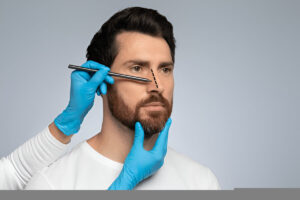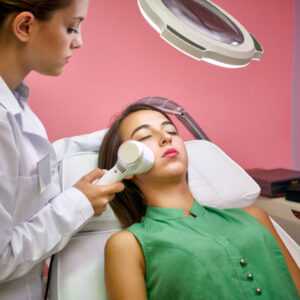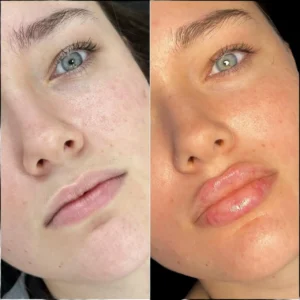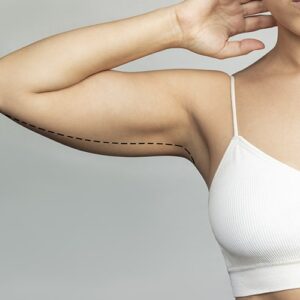Undergoing rhinoplasty is a significant step—both physically and emotionally. Whether you’re opting for a cosmetic change or correcting a functional issue, understanding the recovery process is just as important as the procedure itself. In this article, we’ll walk you through what the recovery journey looks like after rhinoplasty surgery in Dubai, from day one to full healing, so you know exactly what to expect.
What Makes Rhinoplasty Recovery Unique in Dubai?
Dubai offers top-tier surgical care, but its hot and dry climate can impact how you heal. That’s why recovery guidelines here often include tailored tips for managing swelling, hydration, and sun exposure. Knowing what to expect post-surgery helps ensure a smoother, more successful healing experience.

Week-by-Week Rhinoplasty Recovery Timeline
Week 1: Immediate Post-Op Phase
This is the most intensive stage of recovery. You’ll likely experience:
-
Swelling and bruising around the eyes and nose
-
Mild pain or discomfort (manageable with medication)
-
A nasal splint or cast to protect the nose
-
Breathing difficulty due to internal swelling
Key Advice:
-
Rest with your head elevated
-
Avoid blowing your nose
-
Stay indoors and limit physical activity
Your first follow-up appointment typically occurs at the end of this week, when the surgeon may remove the splint and stitches.
Week 2: Initial Healing and Visible Changes
Bruising begins to fade and most patients feel well enough to return to non-strenuous work. The nose may still look swollen, especially at the tip, but improvements are noticeable.
Tips for Week 2:
-
Apply cold compresses as directed
-
Wear sunscreen if stepping outside
-
Avoid wearing glasses directly on the bridge
Weeks 3–4: Reduction in Swelling
Swelling continues to go down, though subtle puffiness may linger. By the end of the first month, you’ll start to see the shape of your new nose more clearly.
You Can Usually:
-
Resume light exercise (with your doctor’s clearance)
-
Go out socially without noticeable signs of surgery
-
Gently clean your nasal passages with saline spray
Months 2–3: Refinement Phase
As healing progresses, the nose continues to settle into its new shape. Most of the swelling is gone, though it may still feel firm or numb in some areas.
What to Expect:
-
Gradual return to normal sensation
-
Continued improvement in nasal function and airflow
-
Increasing satisfaction with your new appearance
Avoid any activity that could impact the nose, like contact sports.
Months 4–6: Subtle Changes and Final Shaping
At this stage, swelling is minimal and the nasal shape appears more refined. It’s a great time for taking professional photos or attending events, as the results are nearly complete.
Helpful Tips:
-
Continue to wear sunscreen on the nose
-
Be gentle with skincare and facial massages
-
Monitor any unevenness and report to your surgeon if concerned
Month 12: Full Healing
By the one-year mark, the nose is typically fully healed inside and out. Final refinements—especially at the tip—will have settled. This is when your surgeon may give final clearance or evaluate if any revisions are needed (which is rare).
At This Point:
-
Swelling is fully resolved
-
Scars, if any, have faded significantly
-
Breathing and aesthetic goals are fully realized
Special Considerations for Healing in Dubai
Dubai’s environment adds a few unique considerations to your recovery plan:
1. Sun Exposure
Avoid the intense sun, especially in the first 3 months. UV rays can worsen scarring and prolong swelling.
2. Dry Air
Use a humidifier indoors to prevent nasal dryness, especially if you’ve had internal corrections like septoplasty.
3. Lifestyle
Post-surgery, avoid saunas, hot yoga, or desert activities that expose your face to heat and dust.
Common Recovery Mistakes to Avoid
To ensure optimal healing after rhinoplasty surgery in Dubai, avoid:
-
Skipping follow-up appointments
-
Rushing back to exercise or travel
-
Touching or adjusting the nose
-
Comparing healing progress with others (each case is unique)
When to Call Your Surgeon
While mild discomfort and swelling are normal, contact your clinic immediately if you notice:
-
Sudden increase in swelling or pain
-
Fever or signs of infection
-
Difficulty breathing that worsens
Prompt care helps prevent complications and keeps your recovery on track.
Conclusion
Recovering from rhinoplasty surgery in Dubai requires patience, attention to aftercare, and a little climate-conscious planning. While the process takes time, understanding the healing timeline can ease worries and help you stay realistic about your results.
From managing the first few days to watching your new profile take shape over the months, each step brings you closer to the nose you envisioned.






